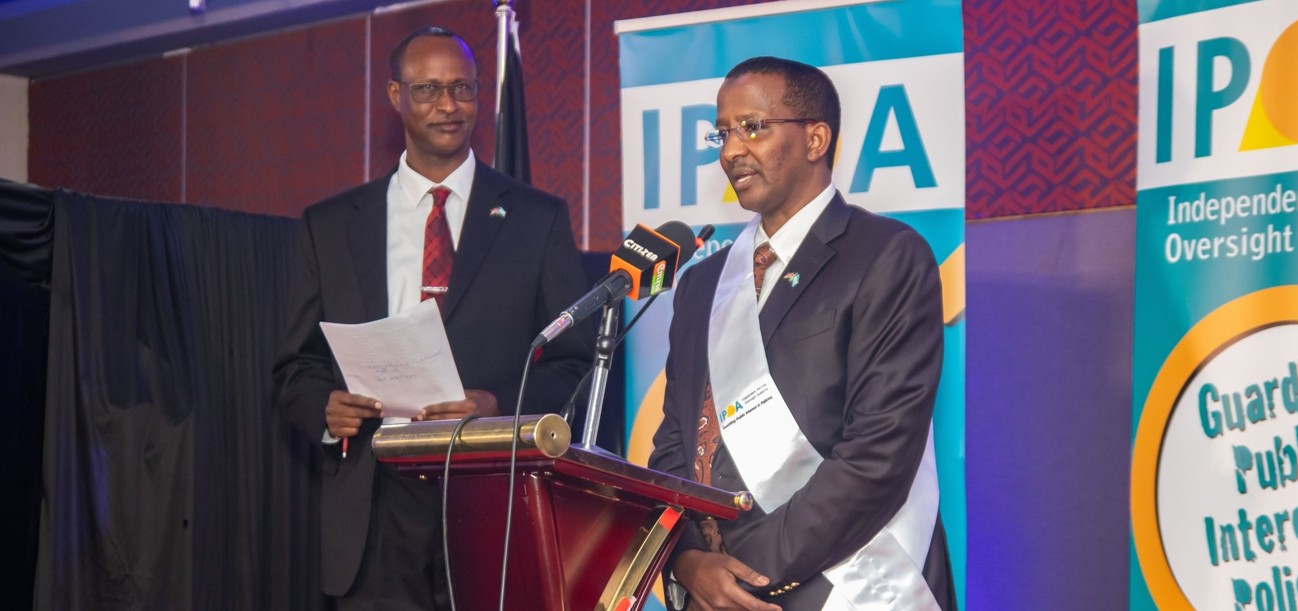Over the past five years, the Independent Policing and Oversight Authority (IPOA) has conducted inspections of more than 5,000 police stations and detention facilities, monitored nearly 1,000 policing operations, and processed 20,112 complaints from citizens across Kenya.
These achievements, highlighted in the authority’s 2019–2024 strategic plan, have now paved the way for the launch of its 2025–2030 strategy.
"This work advanced IPOA's core mission despite non-cooperation challenges from the NPS and insufficient budget allocation," the strategy document released yesterday states.
Monitoring Policing Operations
The IPOA Act, under Section 6(c), mandates the authority to oversee policing operations that affect the public. The monitoring aims to ensure that officers act within the law and uphold human rights standards.
The report notes several milestones, including developing regulations and policies supporting IPOA’s mandate, recommending reforms to the National Police Service (NPS) with a 50 percent adoption rate, resolving complaints, and conducting operational inspections.
Between January and June last year alone, IPOA monitored 38 public order operations.
The review found that the NPS often fell short of meeting the professionalism and accountability standards required under Article 244 of the Constitution.
Several cases of human rights violations were recorded, with officers using excessive force that resulted in deaths and serious injuries.
The report also highlighted that officers were not adequately equipped to manage demonstrations, putting them at risk.
"Just to mention, I think so far we have over 40 police officers who have been investigated, prosecuted and convicted and are serving prison sentences. We continue to work with the Directorate of Public Prosecutions on matters of prosecution of these officers," said IPOA Chairman Ahmed Issack Hassan.
Partnerships and Public Support
At a July briefing organised by the Independent Medico-Legal Unit (IMLU), the Police Reforms Working Group, and civil society groups, IPOA’s Director of Inspections, Monitoring and Preventive Services, Munene Mugambi, said the authority plans to monitor police conduct during national primary and secondary school exams.
He credited IPOA’s success to strong public support and partnerships with government agencies, development partners, and civil society organisations.
"Police compliance with standards and accountability remains a core focus of the Authority's monitoring function," Mugambi told participants.
Recent Findings and Future Plans
This year, IPOA’s report on police responses to protests between June and July 2025 highlighted serious breaches of constitutional policing standards. These included excessive use of force, lack of professionalism, and failure to protect public safety and rights.
The report also found that criminal gangs had infiltrated protests, worsening violence, injuries, and fatalities.
"The level of violence, looting and destruction of property by persons disguised as protesters and opportunistic goons was unprecedented and, in some instances, overwhelmed the police. Lessons must be learned from this by all affected stakeholders so as to inform better public order management in the future," it stated.
In the coming weeks, IPOA will also participate in monitoring the national police recruitment exercise alongside agencies like the Ethics and Anti-Corruption Commission (EACC) and the Office of the Ombudsman.
To implement its new Sh13 billion strategy, the authority plans to leverage technology and strengthen collaboration with stakeholders to enhance police accountability and build public trust in both IPOA and the NPS.

